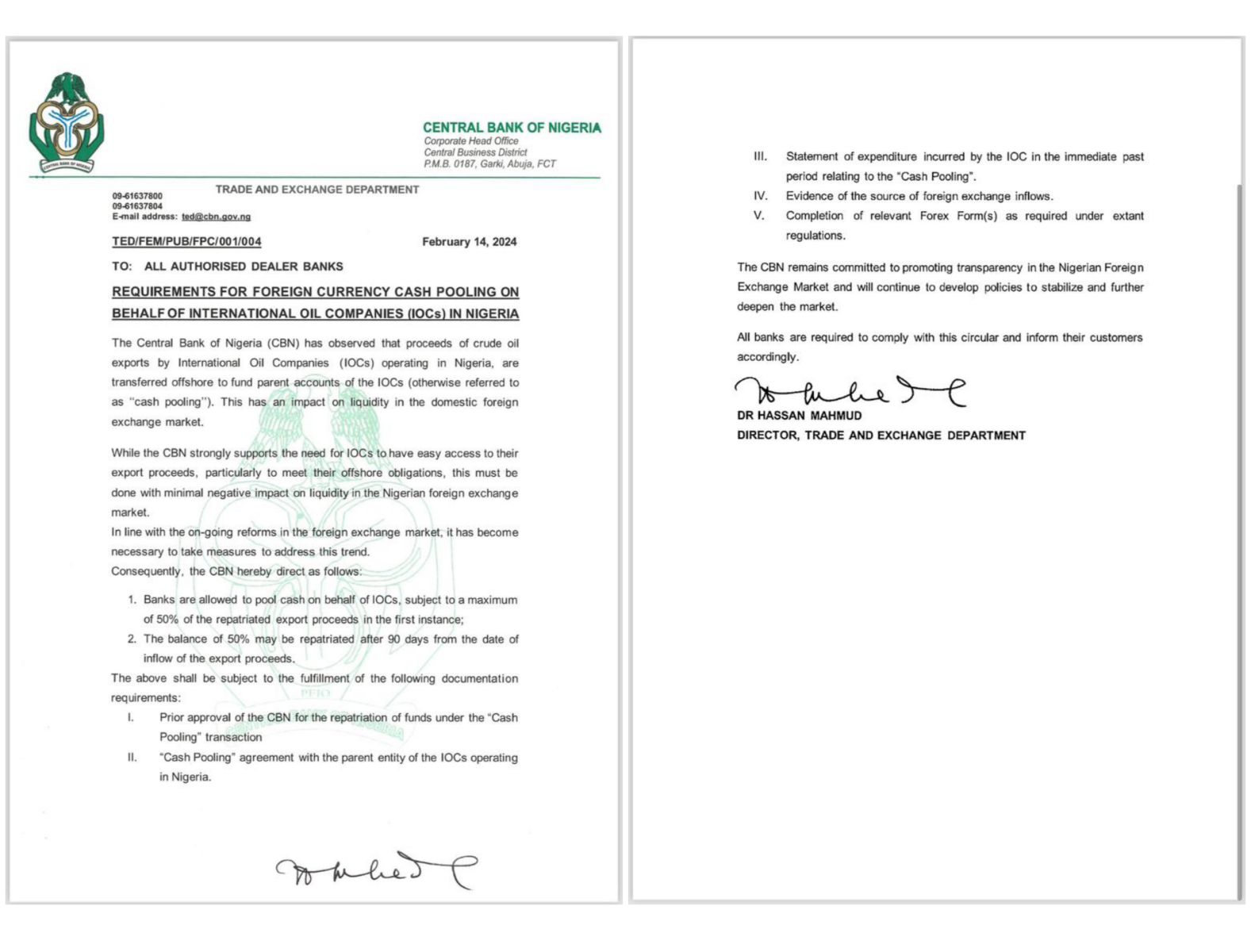
Nigeria, Africa’s largest oil producer and exporter, has made a bold move to sell its oil in its own currency, the naira, instead of the US dollar. This decision, announced by the Nigerian government on February 14, 2024, is aimed at strengthening the naira and reducing the country’s dependence on the dollar, which has been the dominant reserve currency in the world for decades.
 Nigeria is not the first African country to limit the use of the dollar in trade. Egypt, which faced a severe currency crisis in 2016, abolished the use of the dollar in its interbank market and allowed the Egyptian pound to float freely. This helped Egypt to restore its foreign reserves and attract foreign investment.
Nigeria is not the first African country to limit the use of the dollar in trade. Egypt, which faced a severe currency crisis in 2016, abolished the use of the dollar in its interbank market and allowed the Egyptian pound to float freely. This helped Egypt to restore its foreign reserves and attract foreign investment.
However, Nigeria’s case is different, as it involves the oil sector, which accounts for about 90% of the country’s export earnings and 60% of its government revenue. Oil is the most traded commodity in the world, and its price is usually quoted in US dollars. By selling its oil in naira, Nigeria is challenging the status quo and asserting its economic sovereignty.
The benefits of this move could include:
• Boosting the demand and value of the naira, which has been depreciating against the dollar for years, reaching a record low of 1,606 naira per dollar on February 14, 2024. A stronger naira could reduce inflation, increase purchasing power, and improve living standards for Nigerians.
• Increasing the supply and availability of dollars in the local currency market, which has been suffering from a chronic shortage of foreign exchange. This could ease the pressure on the central bank, which has been spending billions of dollars to defend the naira and maintain stability. It could also lower the cost and improve the access of foreign exchange for businesses and individuals who need it for imports or other purposes.
• Enhancing the resilience and diversification of the Nigerian economy, which has been vulnerable to external shocks, such as fluctuations in oil prices and demand, as well as US sanctions and policies. By selling its oil in naira, Nigeria could reduce its exposure to these risks and increase its bargaining power in the global market. It could also encourage the development of other sectors, such as agriculture, manufacturing, and services, which could create more jobs and income for Nigerians.
The challenges of this move could include:
• Facing resistance and backlash from the international oil market, which is dominated by the US and its allies, who benefit from the dollar’s role as the reserve currency. Nigeria could face difficulties in finding buyers who are willing to pay in naira, or who have access to naira. It could also face legal and contractual issues with existing buyers who have agreed to pay in dollars. Nigeria could lose its market share and competitiveness to other oil producers who still sell in dollars.
• Dealing with the volatility and uncertainty of the naira, which could affect the revenue and budget of the Nigerian government and the oil industry. The naira’s value could fluctuate depending on the supply and demand of the currency, as well as the performance of the Nigerian economy and the oil sector. The naira’s value could also be influenced by speculation, manipulation, and cyberattacks, especially if Nigeria adopts digital currencies, such as central bank digital currencies (CBDCs), which are being developed or researched by more than 70 countries, including Nigeria itself.
• Managing the transition and implementation of the new policy, which could require significant changes in the infrastructure, systems, and regulations of the Nigerian oil industry and the financial sector. Nigeria would need to ensure that its oil is priced accurately and transparently in naira, and that its oil transactions are recorded and reported properly. Nigeria would also need to ensure that its oil buyers have access to naira, either through the existing banking channels or through new platforms, such as digital wallets and exchanges.
The decision by the Nigerian government to sell oil in its local currency instead of the US dollar is a bold and risky move that could have significant implications for the Nigerian economy and the global oil market. It reflects the changing dynamics of the world, where the dollar’s dominance is being challenged by emerging economies and new forms of digital money. It also signals the need for new currencies and fair trade systems that can accommodate the diverse needs and interests of different countries and regions.











